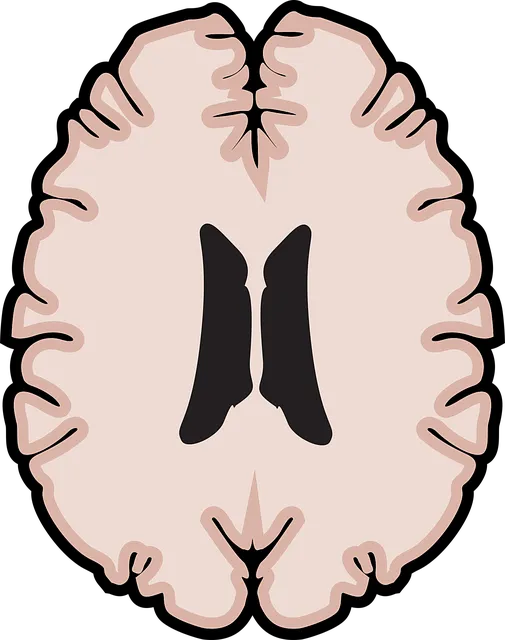Kaiser Permanente behavioral health services Littleton offers specialized mental wellness group facilitation, creating safe spaces for connection, resilience, and emotional well-being. Through evidence-based practices like Mental Wellness Journaling Exercises and Crisis Intervention Guidance, facilitators help individuals improve coping mechanisms, reduce anxiety, and foster a sense of community. Their holistic approach, combined with open dialogue, peer support, and skilled facilitators, enhances mental wellness outcomes while promoting a supportive environment for all participants.
Mental wellness group facilitation plays a crucial role in enhancing individuals’ well-being. This article explores effective techniques, benefits, and challenges within this therapeutic setting, specifically focusing on Kaiser Permanente Behavioral Health Services Littleton as a leading provider. By understanding mental wellness group facilitation, we can harness its power to create supportive environments that foster transformation. Discover practical strategies for facilitating meaningful group therapy sessions in this comprehensive guide, inspired by the expertise of Kaiser Permanente.
- Understanding Mental Wellness Group Facilitation
- Kaiser Permanente Behavioral Health Services Littleton: An Overview
- Effective Techniques for Group Facilitation
- Benefits and Challenges of Group Therapy Sessions
Understanding Mental Wellness Group Facilitation

Mental wellness group facilitation is a specialized skill that plays a vital role in supporting individuals’ mental health journeys. At Kaiser Permanente behavioral health services Littleton, facilitators guide groups through a range of exercises designed to foster connection, build resilience, and promote well-being. This approach differs from individual therapy as it leverages the power of collective support and shared experiences.
Effective facilitation involves creating a safe, non-judgmental space where participants can openly discuss their feelings and challenges. Techniques such as Mental Wellness Journaling Exercises encourage self-reflection and personal growth. Additionally, Crisis Intervention Guidance is crucial for handling intense emotions and providing immediate support during group sessions. This holistic process aims to enhance coping mechanisms, reduce anxiety, and offer a sense of community, ultimately contributing to improved mental wellness outcomes.
Kaiser Permanente Behavioral Health Services Littleton: An Overview

Kaiser Permanente Behavioral Health Services Littleton stands as a beacon of hope and healing for those seeking mental wellness support. This facility offers a comprehensive range of services tailored to meet diverse individual needs, from anxiety relief programs to social skills training, all designed to empower individuals in their journey towards mental well-being.
The Littleton branch is known for its innovative approach, combining evidence-based practices with a warm and supportive environment. Their Mental Wellness Podcast Series Production, for instance, leverages the power of storytelling and community engagement to foster open dialogue about mental health topics. This initiative not only educates but also connects individuals, promoting a sense of belonging and understanding, crucial elements in navigating complex mental wellness issues.
Effective Techniques for Group Facilitation

Effective group facilitation techniques are crucial for fostering a supportive and engaging environment in mental wellness settings, such as those offered by Kaiser Permanente behavioral health services Littleton. One proven method is to encourage active participation through open-ended questions that prompt members to share their experiences and insights. This not only enhances self-esteem improvement but also creates a dynamic tapestry of perspectives within the group.
Additionally, skilled facilitators should employ risk management planning for mental health professionals to ensure a safe space. By establishing clear boundaries and guidelines from the outset, facilitators can prevent potential triggers and promote effective communication among members. Moreover, integrating burnout prevention strategies for healthcare providers is essential to maintain a healthy dynamic within the group, allowing participants to benefit fully from the shared experience without added stress or strain.
Benefits and Challenges of Group Therapy Sessions

Group therapy sessions offer a unique and beneficial environment for individuals seeking support and improvement in their mental wellness. One of the primary advantages is the sense of community it fosters; members gain valuable peer support and can relate to others’ experiences, reducing feelings of isolation. This shared space encourages open dialogue, facilitates emotional expression, and provides an opportunity for participants to learn from one another, enhancing coping skills and building resilience.
Despite these benefits, challenges may arise in group therapy settings. Facilitators must navigate sensitive topics while ensuring every member feels safe and respected. Maintaining confidentiality can be complex in a group format, requiring strict guidelines and consent from participants. Additionally, managing different personality types and individual needs within a group dynamic is an art; tailored exercises like Mental Wellness Journaling, Positive Thinking activities, and Communication Strategies are essential tools to cater to diverse preferences and promote meaningful engagement. The Kaiser Permanente behavioral health services Littleton recognizes these challenges and offers guidance, ensuring a supportive and effective therapeutic experience for all.
Mental wellness group facilitation plays a pivotal role in enhancing overall well-being, as evidenced by successful programs like Kaiser Permanente Behavioral Health Services Littleton. By employing effective techniques, facilitators can create supportive environments that foster meaningful connections and positive change. While challenges exist, the benefits of group therapy sessions are undeniable, offering a holistic approach to mental health care that is both accessible and transformative.






